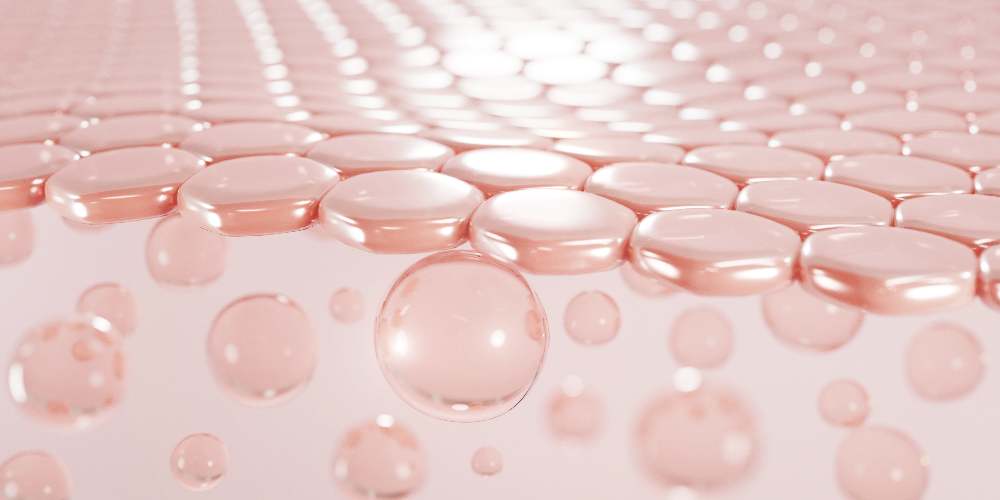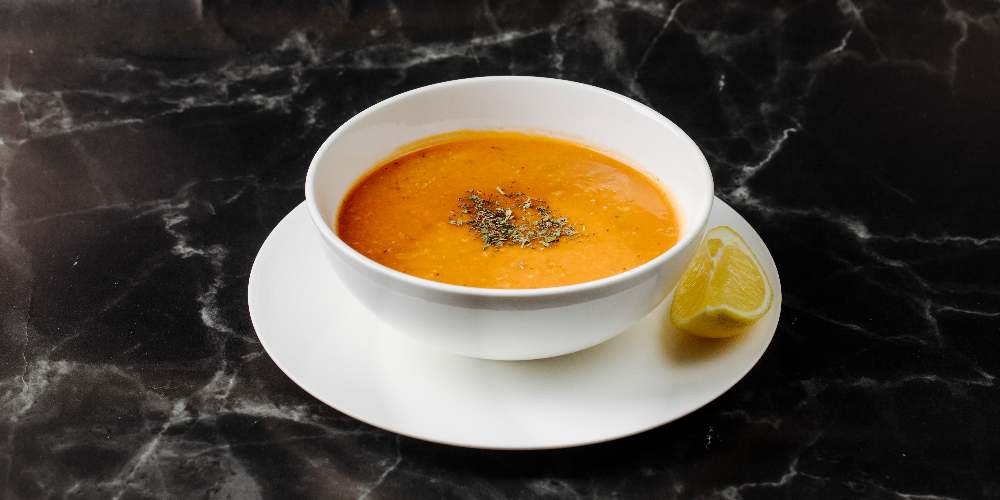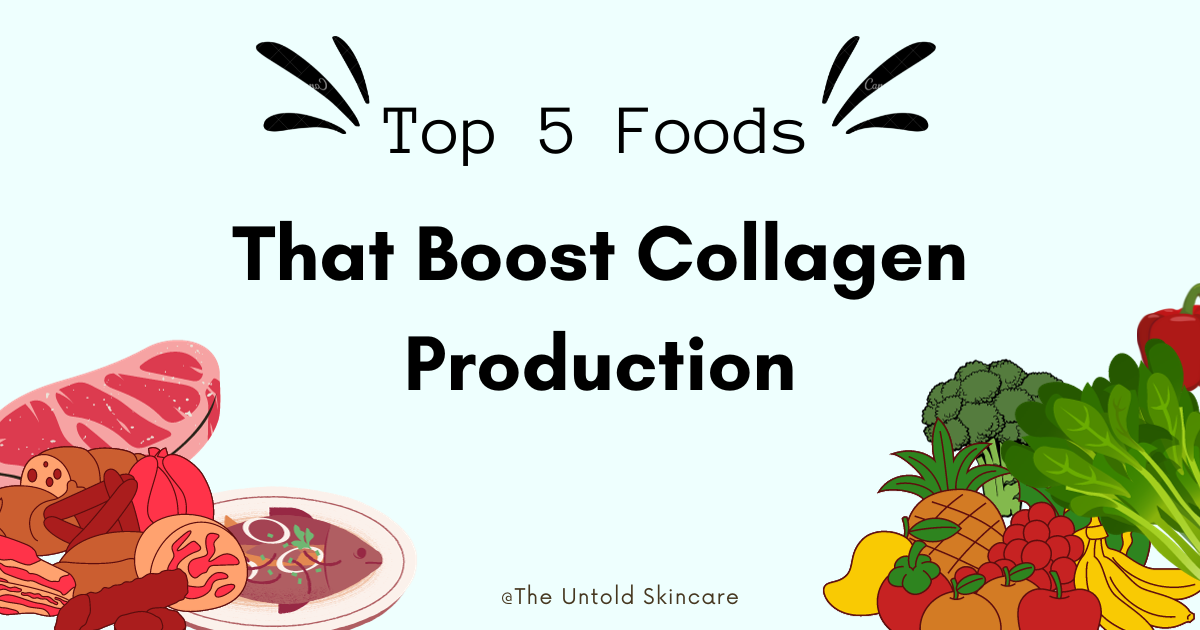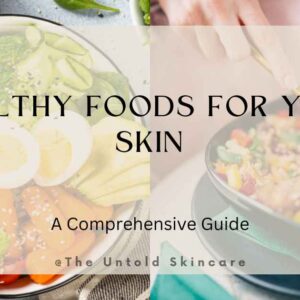Collagen often takes center stage as the secret ingredient for a healthy skin complexion.
As the most abundant protein in our bodies, collagen plays a crucial role in maintaining skin elasticity and overall skin health.
While there are numerous skincare products that help in increasing collagen production, nourishing your body from the inside out is equally—if not more—important.
Fortunately, nature provides us with a palette of foods that can naturally boost collagen production. In this article, you will learn about some of the top foods that boost collagen production which can contribute to the foundation of your skin’s resilience and vibrancy.
What is Collagen?
Collagen is a type of protein in the human body and serves as a fundamental building block for various tissues, including skin, bones, muscles, tendons, and ligaments. It provides structural support, strength, and elasticity to these tissues, contributing to their overall function and integrity.
In the context of skin health, collagen is especially crucial. It forms a framework that supports the outer layer of the skin, known as the epidermis, and gives the skin its firmness and elasticity.
Collagen is the most abundant structural protein in the human body. In fact, it makes up 30% of all the human’s body total protein.
How is Collagen Produced?

Collagen is composed of a series of amino acids including arginine, glutamine, glycine and proline. These amino acids bind together to form procollagen.
After that, these procollagen link together to produce lengthy collagen strands that include over a thousand amino acids. These chains stack one on top of the other and join to form fibrils and three-dimensional helices.
These triple helices give skin its elasticity making it able to be stretched without tearing.
The human body is capable of producing the necessary collagen on its own for a certain amount of time.
However, collagen production starts to decline as your body gets closer to your late 20s or early 30s. At that point, wrinkles and fine lines start to become noticeable.
Why is Collagen Important?
Collagen is also among the major components of almost every tissue in the human body including skin. It connects soft tissues to the skeleton.
Collagen is important for the skin as it acts as the architectural foundation, providing structure, elasticity, and resilience. Comprising a significant portion of the skin’s extracellular matrix, collagen fibers create a framework that supports the epidermis and prevents sagging.
Collagen’s role extends even beyond cosmetic concerns; it contributes to wound healing, skin hydration, and protection against environmental stressors.
Top 5 Foods That Boost Collagen Production
Bone Broth

Bone broth is one of the best foods that boost collagen production due to its rich content of collagen and amino acids.
Collagen is the main protein found in bones, tendons, and ligaments, and during the cooking process of bone broth, collagen is extracted from animal bones. This collagen, when consumed, provides essential building blocks for the body to produce its own collagen, contributing to skin elasticity.
The slow simmering of bones in water during the preparation of bone broth ensures the release of these beneficial compounds, making it a natural and nutritious source for promoting collagen production.
Beef and chicken bone broth are the two best choices for boosting collagen production. Beef bone contains the purest form of collagen.
Chicken with Skin-on

Collagen is the most abundant protein not only in humans but also in most animals, which is why beef, pork, chicken, seafood, and fish are some of the best dietary sources of collagen.
Chicken skin is rich in collagen, particularly types I and III, which are known for their skin-supporting properties.
Chicken also contains essential amino acids like proline and glycine which helps to build and repair collagen.
Berries

Berries are extremely rich in antioxidants, particularly vitamin C, which plays a crucial role in collagen production. Vitamin C is essential for the synthesis of collagen. It helps in the conversion of proline to hydroxyproline, an amino acid necessary for collagen formation.
Include a variety of berries in your diet such as strawberries, blueberries, and raspberries. They also help protect the skin from oxidative stress and damage caused by free radicals.
Citrus Fruits

Just like berries, citrus fruits, such as oranges, lemons, grapefruits, and limes, are excellent sources of vitamin C, a key nutrient for collagen production.
Vitamin c can boost the production of type I and III collagens. It also induces the production of enzymes that encourage your body’s own natural collagen development. Without vitamin C, your body cannot convert amino acids into the strands that form collagen fibrils.
Including citrus fruits in your diet provides a significant boost of vitamin C, which is necessary for the stability and formation of collagen fibers.
Fish

Fish, especially cold-water fish like salmon, mackerel, and tuna, can contribute to collagen production and skin health.
Fish are rich in omega-3 fatty acids, particularly EPA (eicosapentaenoic acid) and DHA (docosahexaenoic acid), which play a role in maintaining skin integrity and supporting collagen production.
In addition to omega-3 fatty acids, fish also provide high-quality protein. Protein is essential for the synthesis of collagen and other structural proteins in the body.
Including fish in your diet can contribute to the amino acids needed for collagen production.
Few Others
Besides, foods that are beneficial for boosting collagen production include leafy greens, nuts, seeds, and vegetables rich in antioxidants.
Leafy greens like spinach and kale provide vitamins and minerals essential for collagen synthesis, while nuts and seeds offer amino acids and healthy fats that support skin health. Vegetables like bell peppers and tomatoes provide vitamin C, aiding in collagen formation.





